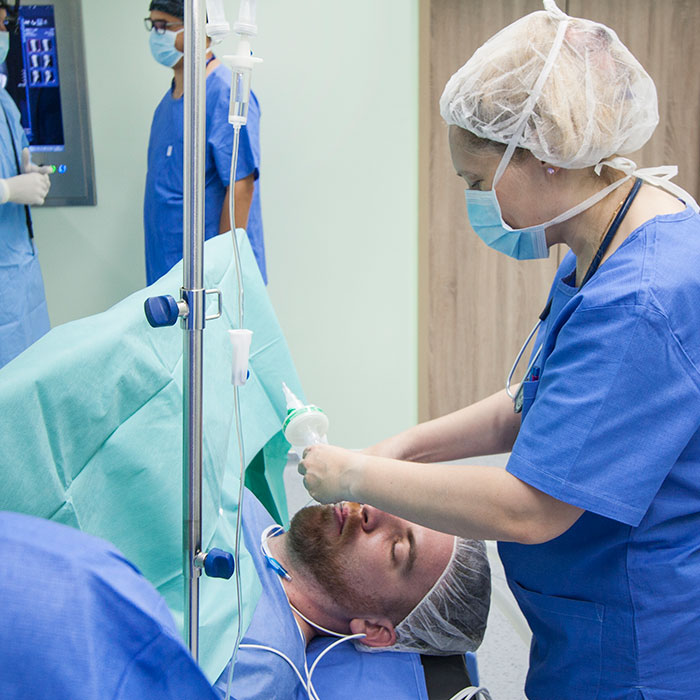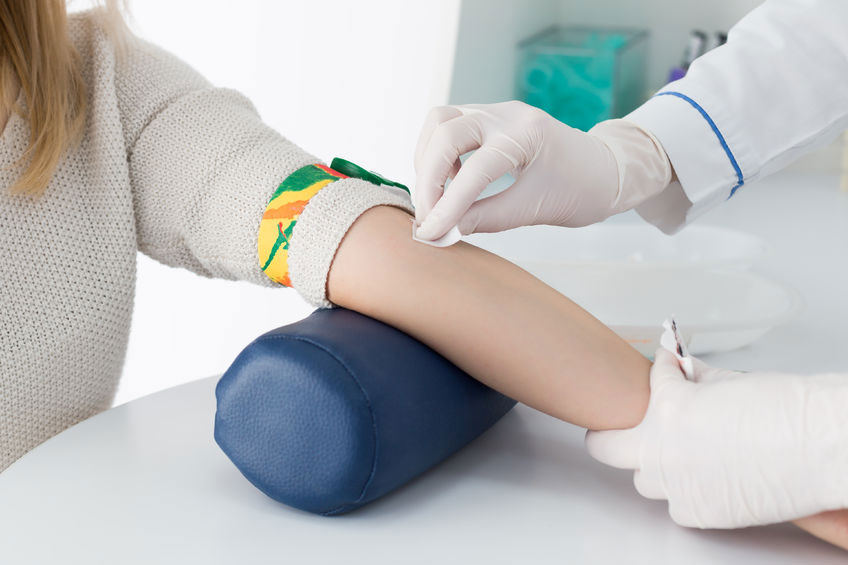Pre-operative laboratory packages
Pre-operative laboratory packages
Why are laboratory tests needed before an operation?
Pre-operative laboratory tests are needed to assess the patient’s general health condition and identify the risk factors, allowing the anesthesiologist to choose the most appropriate anesthesia during surgery, and to help identify factors that may complicate surgery.
Anesthesia is a condition in which perception is partially or completely blocked, the nervous system is not processing stimuli from the environment. Anesthesia can be general (covering the whole body), regional (affecting one part of the body), or local (only on the treated part).
General anesthesia is usually performed under anesthesia, when the patient is asleep, or by intoxication. It can be applied by inhalation, where anesthetics are inhaled with a carrier gas, intravenously, when the deactivation of the nervous system is achieved by drugs, administered to the collecting vessel, or with the combination of these two methods.
Regional anesthesia prevents the stimulus from reaching the central nervous system, which is performed with local anesthetics. Local anesthesia, epidural anesthesia, and spinal anesthesia are all regional methods.
Because the loss of consciousness and perception is always achieved by medication, it is important for the anesthesiologist to be aware of all risk factors (sensitivity, deficiency) prior to anesthesia, that can be detected by a preoperative laboratory test.
What is included in the pre-operative laboratory package?
The preoperative laboratory package includes the most important laboratory tests that are required for non-anesthetic and anesthetic surgery. It includes the following tests:
- Blood count: to determine the absolute number of shaped elements in the blood, red blood cells, white blood cells, and platelets. From this, the anesthesiologist may conclude to anemia, blood loss, inflammatory processes, and coagulation disorders.
- Prothrombin: the test provides information on the function of the enzyme system that initiates blood clotting. It helps to detect and diagnose bleeding disorders and to check the effectiveness of anticoagulant medications. A low value may lead to increased coagulation and a higher risk of thrombosis and embolism. A higher value can lead to bleeding.
- Urea: a resorptive product of amino acids, also an indicator of renal function. Elevated levels usually indicate kidney failure. Its normal value is between 3-7 mmol / l.
- Keratin: the final product of muscle metabolism, its blood level shows the function of the kidneys, it can be used to control the filtrate-forming activity of the kidneys. Normal value: 55-103 µm / l.
- General urine and sediment: this test is used to detect infection, metabolic abnormality, and kidney disease.
- Blood sugar: is used to determine the level of glucose in the blood, it can be used to detect diabetes. High blood sugar levels increase the risk of infectious complications after surgery. Normal value: 3.6 to 6.0 mmol / l.
- Potassium: measuring potassium ions provides important information about the body’s fluid balance, hormonal effects, and therapies used. High levels of potassium can cause heart rhythm problems and breathing problems. Its normal value is between 3.5 and 5 mmol / l.

What additional laboratory tests are needed for anesthesia?
In the case of anesthetic surgery, additional tests are needed to provide information for the anesthesiologist on which method of anesthesia to use during the operation and what factors may influence the course of the operation.
The recommended laboratory package for anesthetic surgeries includes the following tests in addition to the elements of the preoperative laboratory package:

- Blood group antigene definition: this test is needed to find out for which blood group antigen the patient’s body is producing antibodies, and what blood can he/she get in the case of a blood transfusion.
- Bilirubin: is produced by the resorption of red blood cell hemoglobin in the spleen, liver, and certain lymph nodes. Its levels may increase in cases of increased red blood cell resorption, liver disease, and biliary obstruction. Normal total bilirubin: 5 to 17 μmol / l (3 to 10 mg / l).
- AST (aspartate aminotransferase): an enzyme involved in the metabolism of amino acids. It is normally present in small amounts in the blood, but increases in liver damage. Its normal value is 18-31 U / l in women and 18-33 U / l in men.
- ALT (Alanine Aminotransferase): an enzyme produced in liver cells that shows its damage. Normally, it is also presented in small amounts in the blood, increased in case of damage. Its normal value is 7-30 U / l in women and 10-55 U / l in men.
- GGT (gamma-glutamyltransferase): an enzyme produced by the liver, pancreas, and kidneys. Its value is checked when the liver and bile ducts are examined, the most reliable indicator parameter. Normal value for women is 8-40 U / l, 9-50 U / l.
- AP (alkaline phosphatase): an enzyme that helps to break down proteins. It usually provides information for liver and bone disease testings. A high value indicates liver or bone disease (e.g., osteoporosis), a lower value may be due to hypothyroidism, malnutrition, or anemia. Normal value: 20-140 U / l.
- Natrium: Measurement of serum natrium ion concentration can provide important information about fluid balance, hormonal effects, and the effectiveness of treatment. Its normal value in venous blood is 137-150 mmol / l.
How to prepare for the test?
Fasting is required before sampling. The urine sample should be collected in the morning, before the test.
When the results can be expected?
After the 2nd working day, after the test.
What to do after the laboratory test?
With the findings, visit your anesthesiologist for further information on what to do next before your surgery.

